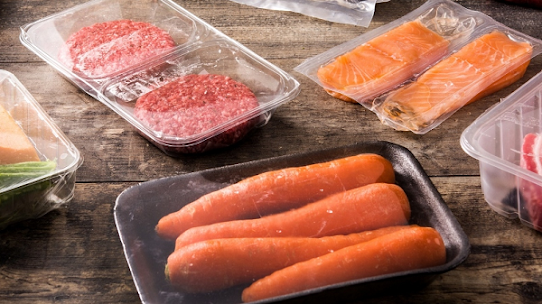Barrier coatings producer Melodea has introduced a barrier product specifically engineered to allow for the recyclability of plastic food packaging.
Named MelOx NGen, the new barrier has proven superior in its key role of maintaining food freshness and substantially reducing plastic waste.
Protects and Extends the Shelf-life of Foods:
MelOx NGen is a water-based, plant-sourced coating designed to line the inside surface of numerous forms of plastic food packaging such as films, pouches, bags, lidding, and blister packs used to house CPG products and is currently being rolled out to the global plastic industry.
Approved by FDA and BfR as compatible for food contact, the coating helps protect and extend the shelf-life of foods such as snacks, confectionary, nutrition bars, meats, and dairy products as well as pharmaceuticals.
Melox NGen is a new iteration of Melodea’s award-winning bio-based and renewable material MelOx for paper packaging but designed specifically for use on plastic. Used to line packaging as a transparent layer, it offers a sustainable and cost-effective alternative to petroleum-based Ethyl Vinyl Alcohol copolymers; - EVOH which are currently widely used in packaging for its food preservation properties.
MelOx NGen, could help expand the scope of plastic food packaging eligible for recycling. It can empower food packagers to fulfill their sustainability goals and align themselves with government regulations aimed at reducing the utilization of single-use plastics.
Cost-effective Solution to Recycle Mono-structure Plastics
As a part of a long-term strategy for reducing plastic consumption and waste, the EU has implemented the Plastic Waste Directive. This directive sets targets for the recycling and reuse of plastic packaging waste. It established a minimum recycling target of 50% for plastic packaging by 2025, increasing to 55% by 2030.
“The global collective effort to drastically curb plastic use is a long and complex process,” said Shaul Lapidot,CEO and co-founder of Melodea. “Our holistic solution can help ease the pressure by boosting the integration of plastic packaging into the circular economy, immediately.”
“The majority of plastic packaging available today cannot be recycled due to its multi-structure composition. “EVOH, which is typically infused into the thin plastic films of the food packaging to serve as an oxygen barrier, is non-recyclable preventing the entire package from being recyclable.
Since the outbreak of COVID-19, there has been a global surge in demand for EVOH, resulting in a significant spike in prices. These prices climbed from $5.5 per kg in 2019 to anywhere between $11 and $14 per kilo at the end of 2022 and are expected to rise further.
Source: Melodea/omnexus-specialchem
Visit MY BLOG http://polymerguru.blogspot.com
#plastics #packaging #barrier #recycling #waste #EVOH





No comments:
Post a Comment